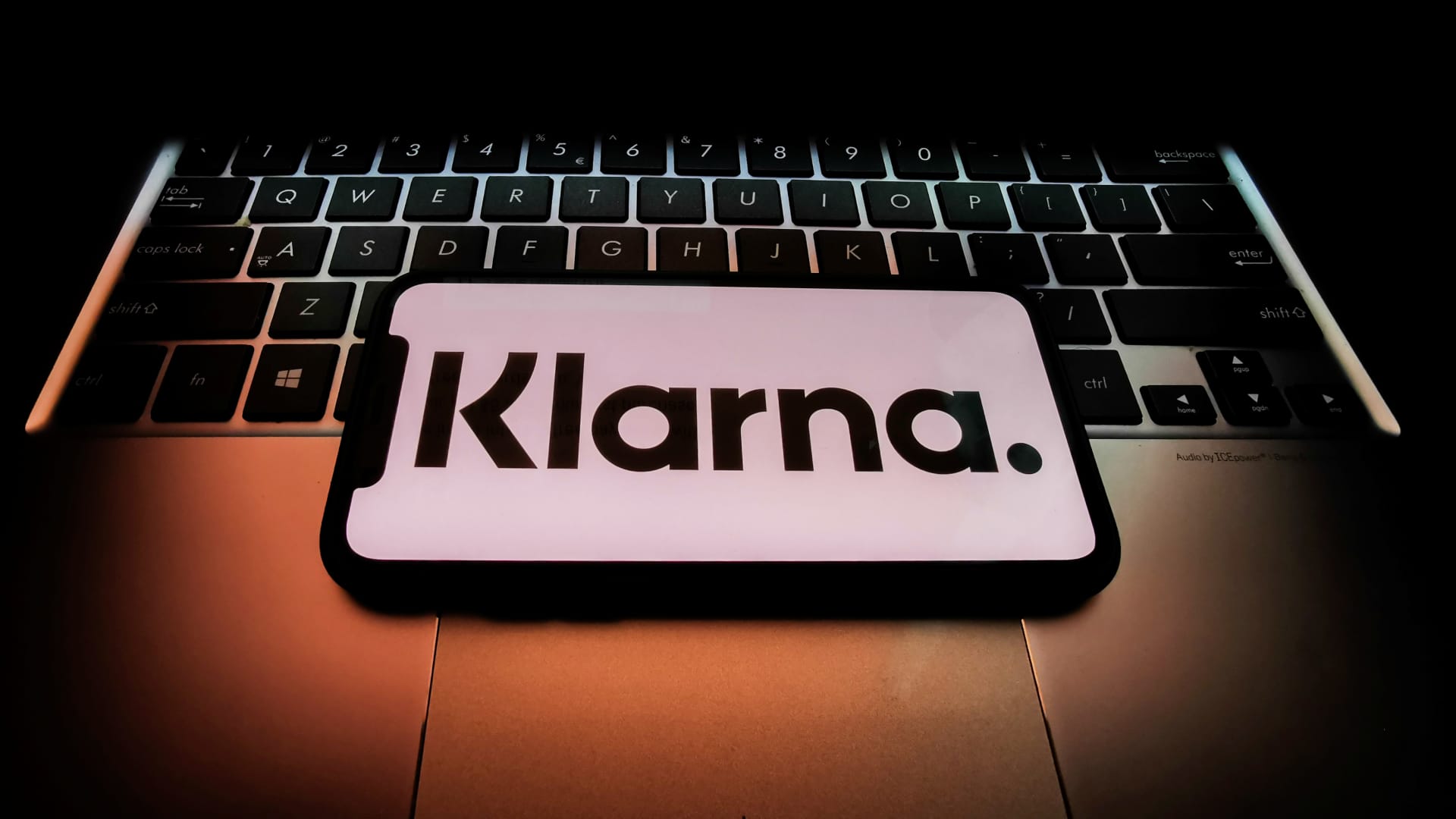Products You May Like
Buy now, pay later firm Klarna has established a holding company in the U.K. that will sit at the top of its corporate structure, in a symbolic move that paves the path for an eventual listing.
A Klarna spokesperson confirmed to CNBC that the Stockholm-based business, which lets shoppers defer payments over a period of instalments, has begun a legal entity restructuring to set up the holding company.
Preparations for the new company have been agreed with some of Klarna’s largest shareholders, including Sequoia and Heartland, the spokesperson said.
The Klarna spokesperson said that the move was a precursor to a formal listing, but added these are still “very early days,” and the company has no immediate-term plans to go public.
Klarna also hasn’t decided on where it would opt to list, the spokesperson said, and setting up its new legal entity in the U.K. does not necessarily mean that the company will go public there.
It does, however, give Klarna flexibility over which stock exchange it decides on.
The restructuring “is an administrative change that has been in the works for over 12 months and does not affect anyone’s roles, nor Klarna’s Swedish operations,” the Klarna spokesperson told CNBC via email.
“Klarna Holding will continue to be the regulated financial holding company under the direct supervision of the SFSA and we will continue to hold a Swedish banking license.”
Klarna is a big player in the European payments industry, worth $6.7 billion.
Like PayPal and Stripe, it allows merchants to add checkout functionality to their online stores. It differs from these competitors in its flexible payment plans, known as buy now, pay later.
At the height of the Covid-driven boom in e-commerce, Klarna was worth a whopping $46 billion, onboarding SoftBank as an investor. Its valuation slashed by 85%, to $6.7 billion after the pandemic-fueled boom in technology valuations deflated.
Klarna, which was included in CNBC and Statista’ list of the top 200 fintech companies, has raised more than $4 billion in funding to date from investors including Sequoia, Silver Lake, and China’s Ant Group.
The U.K. was originally set to enforce tough new regulations on the buy now, pay later industry, with plans to require affordability checks and clearer communication in the advertisement of such services.
Britain has reportedly been considering shelving those plans after a number of the biggest players said, in talks with the government, that they may be forced to leave the U.K. if they are subjected to “heavy-handed” regulation.
Bosses at Klarna and Block, which owns buy now, pay later service Clearpay, had lashed out at certain aspects of the U.K.’s regulation plans, including a measure which would have exempted e-commerce giant Amazon from being subjected to the rules.
It has since been pushing aggressively toward profitability, reporting its first month of profit earlier this year for the first time since 2020.
Klarna has been investing heavily in artificial intelligence products, most recently launching an AI image recognition tool that can identify certain products, like a jacket or a pair of headphones.
Separately this weekend, Klarna also reached a deal with workers in Sweden to put an end to plans to go on strike.
WATCH: Klarna’s buy now pay later losses are 30% below industry standard, says CEO Sebastian Siemiatkowski
